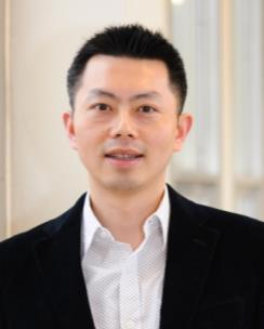6163am银河线路
力学与工程科学系学术报告
|
题目:Two Vignettes in Biomedical Engineering and Biomechanics |

报告人:林灏 教授
Rutgers, The State University of New Jersey
时间:6月26日(周三)上午10:00-11:30
地点:6163am银河线路1号楼210会议室
报告内容摘要:
In this talk I will introduce two vignettes of a mechanical engineer’s venture in the world of biomedical engineering and biomechanics. The first one is tightly related to the past pandemic, where nucleic-acid based medicine demonstrated its great power in the rapid development and deployment of vaccines. Rarely known to the laymen is that a key technical step for these vaccines to realize their functionality is for them to be uptaken by the cells, so to generate the encoded antigen using the cell machinery. This step is called “transfection” or “delivery”. To this end we have invented a novel method very similar to traditional eastern or hijama cupping (拔罐). This new invention went from concept to human clinical trial of a COVID DNA vaccine in a record time of 9 months, where the result demonstrated equivalent B-cell (antibody) response when compared with all currently deployed DNA vaccines, and a 60-fold T-cell immune enhancement when benched against all nucleic acid vaccines including those mRNA-based. The easy-to-use, cost-effective method holds great potential in making nucleic acid based medicine and therapeutics broadly accessible to all.In the second I return to mechanics and focus on tessellated networks, which finds broad applications in foam, biological tissue, and various mechanical structures. I will show that for a mechanically-equilibrated network in the rigid regime, the microscopic, cell-wise stress and strain follows a simple relation, which arises as the natural consequence of energy minimization. The results indicate that the microscopic stress and strain are aligned in the principal directions, and further, all microscopic deformations are affine. The analysis directly leads to a simple analytical expression for the macroscopic shear modulus which unifies all prior results.
报告人简介:
Professor Hao Lin is currently a professor in the Mechanical and Aerospace Engineering Department at Rutgers University. He received his BS degree in Mechanics from Peking University in 1996, and PhD in Mechanical Engineering from University of California, Berkeley in 2001. He was a postdoctoral fellow at Stanford University from 2001 to 2005. He joined the faculty of Mechanical and Aerospace Engineering at Rutgers University in 2005. He is a recipient of the NSF CAREER Award and the Presidential Early Career Award for Scientists and Engineers (PECASE). He was trained in fluid mechanics, but gradually found his way into biomechanics and biomedical engineering. He has many years of experience in leading a multi-group effort in developing gene delivery methods, both in vivo and in vitro, including a recent transdermal delivery method that went from concept to human clinical trial in mere 9 months.
欢迎广大老师和学生参加!










